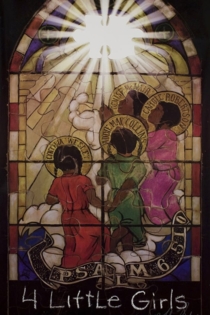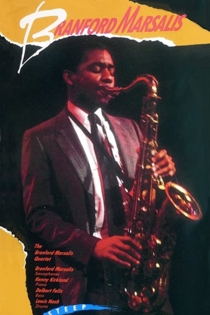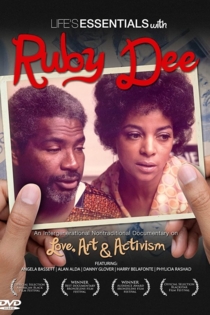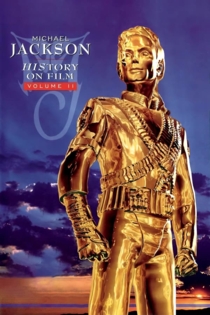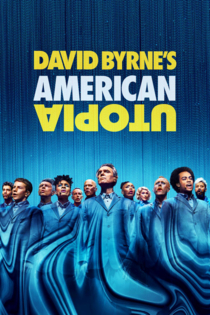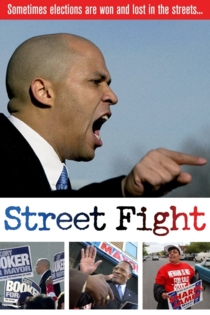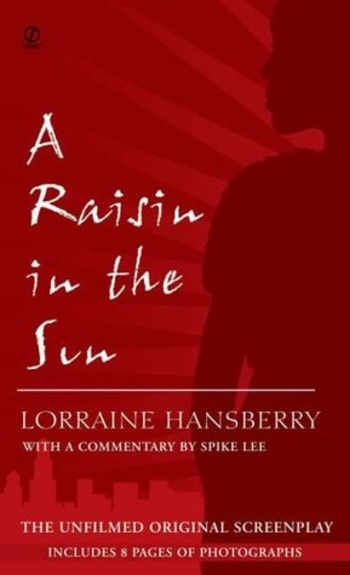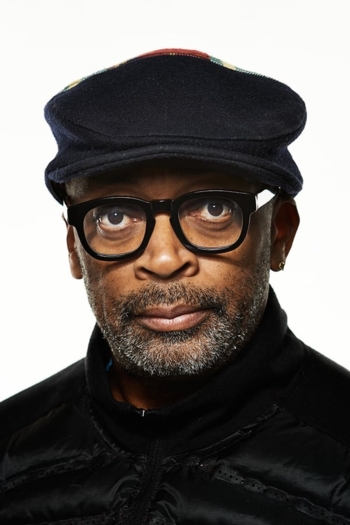
Spike Lee
1957 (68 лет)He attended school in Morehouse College in Atlanta and developed his film making skills at Clark Atlanta University. After graduating, he went to the Tisch School of Arts graduate film program. He made a controversial short, The Answer (1980), a reworking of D.W. Griffith's The Birth of a Nation (1915) -- a ten-minute film. Lee went on to produce a 45-minute film Joe's Bed-Stuy Barbershop: We Cut Heads (1983), which won a student academy award. Lee's next film, "The Messenger," in 1984, was somewhat biographical. In 1986, Spike Lee made the film, She's Gotta Have It (1986), a comedy about sexual relationships. The movie was made for 175,000 dollars, and made seven million. Since then, Lee has become a well-known, intelligent, and talented film maker. His next movie was School Daze (1988), which was set in a historically black school and focused mostly on the conflict between the school and the Fraternities, of which he was a strong critic, portraying them as materialistic, irresponsible, and uncaring.
Lee went on to do his landmark film, Do the Right Thing (1989), a movie specifically about his own town in Brooklyn, New York. The movie garnered an Oscar nomination, for Danny Aiello, for supporting actor. It also sparked a debate on racial relations. Lee went on to produce the jazz biopic Mo' Better Blues (1990) which showed his talent for directing and acting, and was the first of many Spike Lee films to feature Denzel Washington. His next film, Jungle Fever (1991), was about interracial dating. Lee's handling of the subject proved yet again highly controversial. Lee's next film was the self-titled biography of Malcolm X (1992), which had Denzel Washington portraying the civil rights leader. The movie was a success, and resulted in an Oscar nomination for Washington. His next films were the comparatively light, Crooklyn (1994), and the intense crime drama, Clockers (1995). In 1996, Lee directed two movies: the badly received comedy, Girl 6 (1996), and the politically pointed, Get on the Bus (1996), about a group of men going to the Million Man March. His next film, He Got Game (1998), proved to be another excursion into the collegiate world as he shows the darker side of recruiting college athletes. The movie, in limited release, yet again featured Denzel Washington. In 2000 came Bamboozled which made a mockery out of television and the way African-Americans are perceived by white America and the way African-Americans perceive themselves. The movie, however, was a resounding critical success. Lee also has produced films like New Jersey Drive (1995), Tales from the Hood (1995), and Drop Squad (1994). He also has produced and or directed movies about Huey P. Newton, Jim Brown, and has commented in many documentaries about varied subjects. Lee is an obsessive New York Knicks fan. He and his wife, Tonya Lewis Lee, have two children.
NBA Below the Rim
Larry Weitzman
Hal Douglas, Larry Bird
Men among giants, the NBA's little big men are the unsung heroes of the court. Defying the odds, these players rise to levels above and beyond even their own expectations. Marvel at the men who beat the odds to make it in a big man's game: Mark Price's amazing long-range shooting, Spud Webb's incredible dunks, and Tim Hardaway's killer cross-over.
Below the Rim
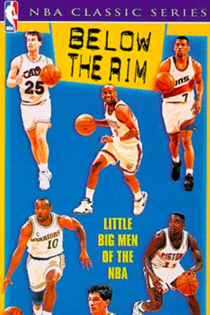
Hoop Dreams
Steve James
William Gates, Arthur Agee
Every school day, African-American teenagers William Gates and Arthur Agee travel 90 minutes each way from inner-city Chicago to St. Joseph High School in Westchester, Illinois, a predominately white suburban school well-known for the excellence of its basketball program. Gates and Agee dream of NBA stardom, and with the support of their close-knit families, they battle the social and physical obstacles that stand in their way. This acclaimed documentary was shot over the course of five years.
Hoop Dreams
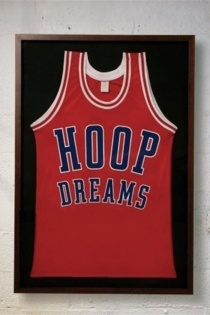
Spike Lee & Company: Do It a Cappella
Ernest R. Dickerson
Debbie Allen, David Dinkins
A 1990 PBS documentary around the topic of A cappella music. Artists that performed as part of the documentary include The Mint Juleps, Ladysmith Black Mambazo, Rockapella and The Persuasions. It also stars Spike Lee, Debbie Allen and a cameo appearance by Samuel L. Jackson.
Spike Lee & Company: Do It a Cappella
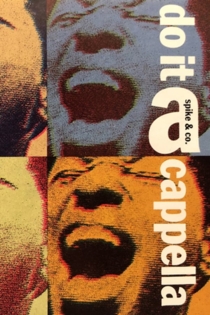
John Leguizamo: Freak
Spike Lee
John Leguizamo
John Leguizamo's semi-falsified, one-man stand-up performance as...himself. This is his autobiographical story, about his life growing up, and his journey to try to be accepted by his father. We see this story through a bizarre myriad of characters and situations, which include the eccentric Uncle Sanny, the Fat Boy Called Bitch (John's little brother, Poochie), his mom, his evil grandmothers, and Lee Stratsberg, not to mention a brief appearance by Cantinflas as God.
John Leguizamo: Freak
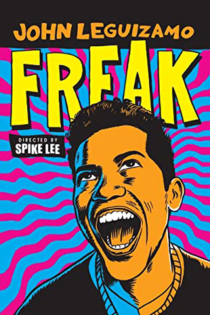
Winning Time: Reggie Miller vs. The New York Knicks
Dan Klores
Reggie Miller, Cheryl Miller
Reggie Miller single-handedly crushed the hearts of Knick fans multiple times. But it was the 1995 Eastern Conference Semifinals that solidified Miller as Public Enemy #1 in New York City. With moments to go in Game 1, and facing a seemingly insurmountable deficit of 105-99, Miller scored eight points in 8.9 seconds to give his Indiana Pacers an astonishing victory. This career-defining performance, combined with his give-and-take with Knicks fan Spike Lee, made Miller and the Knicks a highlight of the 1995 NBA playoffs. Peabody Award-winning director Dan Klores will explore how Miller proudly built his legend as "The Garden's Greatest Villain".
Winning Time: Reggie Miller vs. The New York Knicks
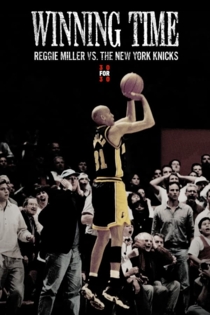
Breslin and Hamill: Deadline Artists
Jonathan Alter, Stephen McCarthy
Pete Hamill, Jimmy Breslin
Directors Jonathan Alter, John Block and Steve McCarthy bring New York columnists Jimmy Breslin and Pete Hamill’s courageous writing to life, celebrating the acclaimed journalists and the city they loved.
Breslin and Hamill: Deadline Artists
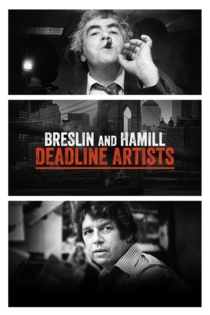
Beyond Wiseguys: Italian Americans & the Movies
Steven Fischler
Paul Borghese, Francis Capra
Documentary portrays the saga of how Italian Americans went from being outsiders who were stereotyped as gangsters in American movies to insiders in Hollywood who took control of their own stories. Interviews, film clips and home movies from Italian American filmmakers highlight personal experiences and comment on Hollywood's politics and cultural impact.
Beyond Wiseguys: Italian Americans & the Movies

Bad 25
Spike Lee
Michael Jackson, Spike Lee
Spike Lee pays tribute to Michael Jackson's Bad on the twenty-fifth anniversary of the epochal album, offering behind-the-scenes footage of Jackson recording the album and interviews with confidants, musicians, choreographers, and such music-world superstars as Kanye West, Sheryl Crow, Cee Lo Green and Mariah Carey.
Bad 25
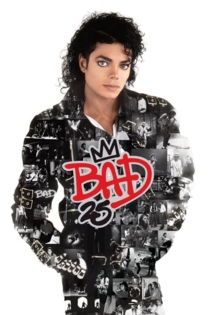
Do the Right Thing
Spike Lee
Spike Lee, Danny Aiello
Salvatore "Sal" Fragione is the Italian owner of a pizzeria in Brooklyn. A neighborhood local, Buggin' Out, becomes upset when he sees that the pizzeria's Wall of Fame exhibits only Italian actors. Buggin' Out believes a pizzeria in a black neighborhood should showcase black actors, but Sal disagrees. The wall becomes a symbol of racism and hate to Buggin' Out and to other people in the neighborhood, and tensions rise.
Do the Right Thing
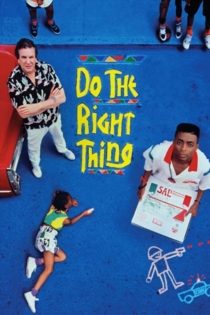
When We Were Kings
Leon Gast
Muhammad Ali, George Foreman
It's 1974. Muhammad Ali is 32 and thought by many to be past his prime. George Foreman is ten years younger and the heavyweight champion of the world. Promoter Don King wants to make a name for himself and offers both fighters five million dollars apiece to fight one another, and when they accept, King has only to come up with the money. He finds a willing backer in Mobutu Sese Suko, the dictator of Zaire, and the "Rumble in the Jungle" is set, including a musical festival featuring some of America's top black performers, like James Brown and B.B. King.
When We Were Kings
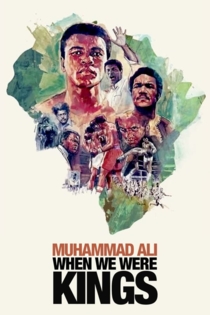
4 Little Girls
Spike Lee
Maxine McNair, Chris McNair
On September 15, 1963, a bomb destroyed a black church in Birmingham, Alabama, killing four young girls who were there for Sunday school. It was a crime that shocked the nation--and a defining moment in the history of the civil-rights movement. Spike Lee re-examines the full story of the bombing, including a revealing interview with former Alabama Governor George Wallace.
4 Little Girls
